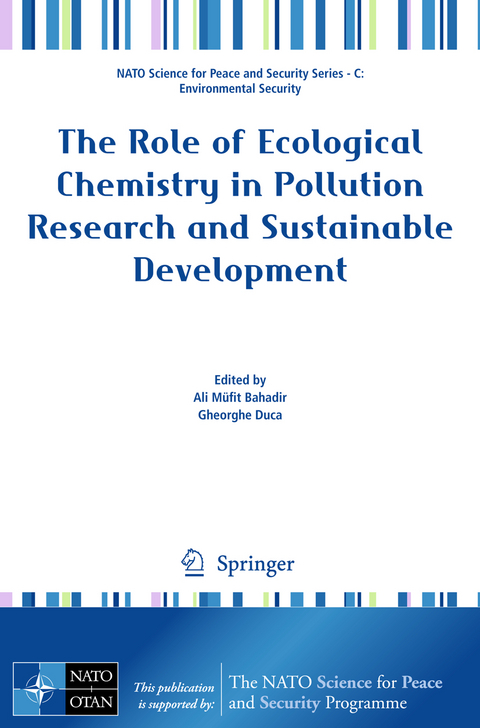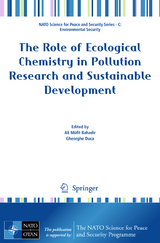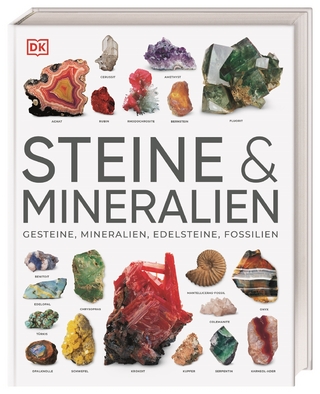The Role of Ecological Chemistry in Pollution Research and Sustainable Development
Sustainable Development has become the leading concept of the 21 century. It describes a development, which agrees with the needs of the present generation but does not endanger the chances of the coming generations to satisfy also their needs. “Sustainable development” has become an important general goal for all fields of life like economy, ecology and social balance. The development and shaping of our future has been discussed internationally like on the summits of the Conferences in Rio and in Johannesburg. But this is also a topic on national base in various countries. Leading authorities in various fields of economy and politics have also accepted this concept. Although the concept of sustainable development has been generally accepted, there are still problems how to achieve and evaluate these general goals. It is clear that the definitions about the prime needs vary from man to man, from country to country and from continent to continent. But pollution does not respect national borders. Therefore, it is necessary to develop the politics of economy, ecology and social demands by a synergistic way that they are strengthened by each other. If it is not possible to stop tendencies, which threaten the future quality of life, the cost demands of societies will dramatically increase and negative tendencies will become irreversible.
<
Organic Pollutants and Pops In The Environment — Occurence, Fate and Prevention Measures.- Brominated Flame Retardants in the Environment.- Fate of Persistent Organic Pollutants in the Venice Lagoon: from the Environment to Human Beings Through Biological Exploitation?.- Pharmaceuticals and Personal Care Products in the Environment.- Monitoring and Measures on Pops in Turkey.- Current State in the Field of Persistent Organic Pollutants Management in Ukraine.- Water Pollution and Waste Water Treatment.- Water Quality Monitoring and Management in Moldova.- Intermediates in Photochemistry of Fe(III) Complexes in Water.- The Hydro-Chemical Changes of Lake Sevan Water After the Artificial Lowering of the Water Level.- State-of-the Art of Wastewater and Sludge Treatment in Turkey.- Sustainable Adopted Wastewater Treatment and Reuse in Agriculture.- Investigation of the Oil-Products Solubility in Water: Qualitative Composition and Quantitative Limits of the Oil-Water Mixtures.- Application of Low-Cost Sorbent for Oil Spill Sorption Using Response Surface Methodological Approach.- Combined Photo-Biochemical Reactor for the Destruction of Organic Pollutants in Water.- Soil Pollution and Prevention.- Sources and Forms of Soil Chemical Degradation.- Veterinary Medicinal Products in Manures and Soils - Problems and Solutions.- Lichens (Punctilia rudecta) As Bioindicators for Air Pollution in Ohio, USA.- Farming Practices in Moldova for Preventing Pollution and Degradation of the Environment.- The Role of Soil Organic Matter in Limiting Organic Pollution in Soils with Focus on Endocrine Disruptor Compounds.- Waste Management.- Humic Substances in Municipal Refuse Disposed of in a Landfill.- Recovery and Disposal of Phosphate Sludge From Automotive Industry.- Processing andValorization of Secondary Winery Products.- Fate and Behavior of Toxic Organic Pollutants in Plant, Soil and Irradiated Sewage Sludge.- New Environmentally Safe and Efficient Way for Destruction of Toxic Chemicals.- Electrocatalysis of a Major Pollutant, Co2, Transformation Into Useful Organic Matter - Fundamental and Applied Contributions.- Waste Management in Low Income and Emerging Countries.- Risk Assessment, Mitigation Measures and Environmental Awareness.- Establishment of the Strategic Environmental Assessment (SEA) System in the Republic of Moldova.- Biosensors in the System of Express Control of Chemicals, Regularly Used as Terrorist Means, to Prevent Non-Desirable Consequences.- Comparative Study of Knowledge in Environmental Problems in the Context of Various Population Groups in Two EU Member States.- A Green Chemistry Lab Course.
| Reihe/Serie | NATO Science for Peace and Security Series |
|---|---|
| Zusatzinfo | XX, 308 p. |
| Verlagsort | Dordrecht |
| Sprache | englisch |
| Maße | 155 x 235 mm |
| Themenwelt | Sachbuch/Ratgeber ► Natur / Technik ► Natur / Ökologie |
| Naturwissenschaften ► Biologie ► Ökologie / Naturschutz | |
| Naturwissenschaften ► Chemie | |
| Naturwissenschaften ► Geowissenschaften ► Geologie | |
| Recht / Steuern ► EU / Internationales Recht | |
| Recht / Steuern ► Öffentliches Recht ► Umweltrecht | |
| Technik ► Umwelttechnik / Biotechnologie | |
| Schlagworte | Nachhaltigkeit • Ökochemie • Umweltverschmutzung |
| ISBN-10 | 90-481-2902-8 / 9048129028 |
| ISBN-13 | 978-90-481-2902-7 / 9789048129027 |
| Zustand | Neuware |
| Haben Sie eine Frage zum Produkt? |
aus dem Bereich




